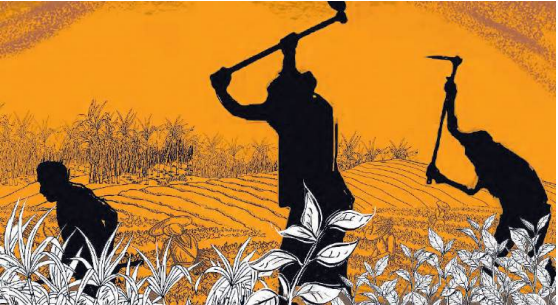
What would you rather discuss with your
friends? The chances of the recently
impeached former Deputy President
Rigathi Gachagua continuing to be a
political force all the way up to the 2027
election? Or agrarian reform?
I believe most of us would prefer to debate the fate of the former DP, and the extent to which Central Kenya will coalesce around him, in rejection of any possibility of ever supporting President William Ruto in future elections.
There is drama in such a topic, complete with all the raw human emotions which arise from thwarted ambitions; accusations of betrayal; vows of revenge; and just about anything else that you would expect in a really good action movie.
Compared to that, if judged in terms of what is likely to interest the average Kenyan, what are the complexities of agrarian reform? Indeed, apart from farmers who actually grow tea, does anyone now ask what will happen to the proposed reforms of the tea sector that had been championed by that very same Rigathi Gachagua?
Will the stakeholders’ forums he had organised be revived? And will they lead to any lasting solutions to the current crisis over reduced tea farmers’ incomes?
This pattern of ever-collapsing farm incomes is a worrying trend as it affects large numbers of our rural-dwelling populations.
There was a time when the small-scale coffee farmers of Central Kenya lived like kings – or at least, they were like kings when compared to their neighbours who did not get to harvest any coffee beans.
That day is long gone. Then the sugarcane farmers of Western Kenya also had their day in the sun, getting reliably-sourced inputs for their sugarcane, and assisted with mechanised harvesting by the sugar factories of that region when the time for harvest came.
Then followed a sizeable cheque which allowed them to live much the same kind of life that tea farmers had until fairly recently, with some elderly men, considered pillars of their communities, suddenly finding their pockets filled with cash, heading to the nearest big town to patronise bars and brothels for weeks at a time (just as tea farmers in some parts of Kenya are still said to do).
Tea was the last holdout of the profitable cash crops for small-scale farmers. Some such farmers grow flowers, fruits and vegetables for horticultural exports, but I doubt if their numbers in any way equal those who once lived solidly middle-class lives purely as growers of tea, or coffee, or sugarcane.
So having already seen how certain agrarian sub-sectors effectively collapsed and put an end to the prosperity that those who grew certain crops had come to enjoy, you would think that agrarian reform is something our technocrats should prioritise.
And as I have often argued, there is barely any problem faced by a developing country like Kenya, which had not already, earlier in history, been faced – and overcome – by a country more economically advanced than ours.
But when it comes to global agriculture, there are no easy answers. Apparently, there can be no effective long-term reforms in this sector. And all solutions are temporary.
Let me illustrate this point with an example from one of the world’s top advanced economies: In France, there are dramatic protests against French agriculture policy, which take place every few years.
These protests take the form of thousands of French farmers driving their tractors to Paris and blocking all major highways into and out of the capital city, even as they send their representatives to make their latest demands to the government.
French farmer protests are now something of a tradition, going back to the early 20th century. They occur whenever French farmers feel that their earnings from their hard work on their farms is threatened or is declining.
This indicates that France has not been able to find any fixed and long-term reforms to bring prosperity to the picturesque French countryside. All proposed solutions to the challenges faced by French farmers have proved to be just temporary measures.














![[PHOTOS] Ole Ntutu’s son weds in stylish red-themed wedding](/_next/image?url=https%3A%2F%2Fcdn.radioafrica.digital%2Fimage%2F2025%2F11%2Ff0a5154e-67fd-4594-9d5d-6196bf96ed79.jpeg&w=3840&q=100)


